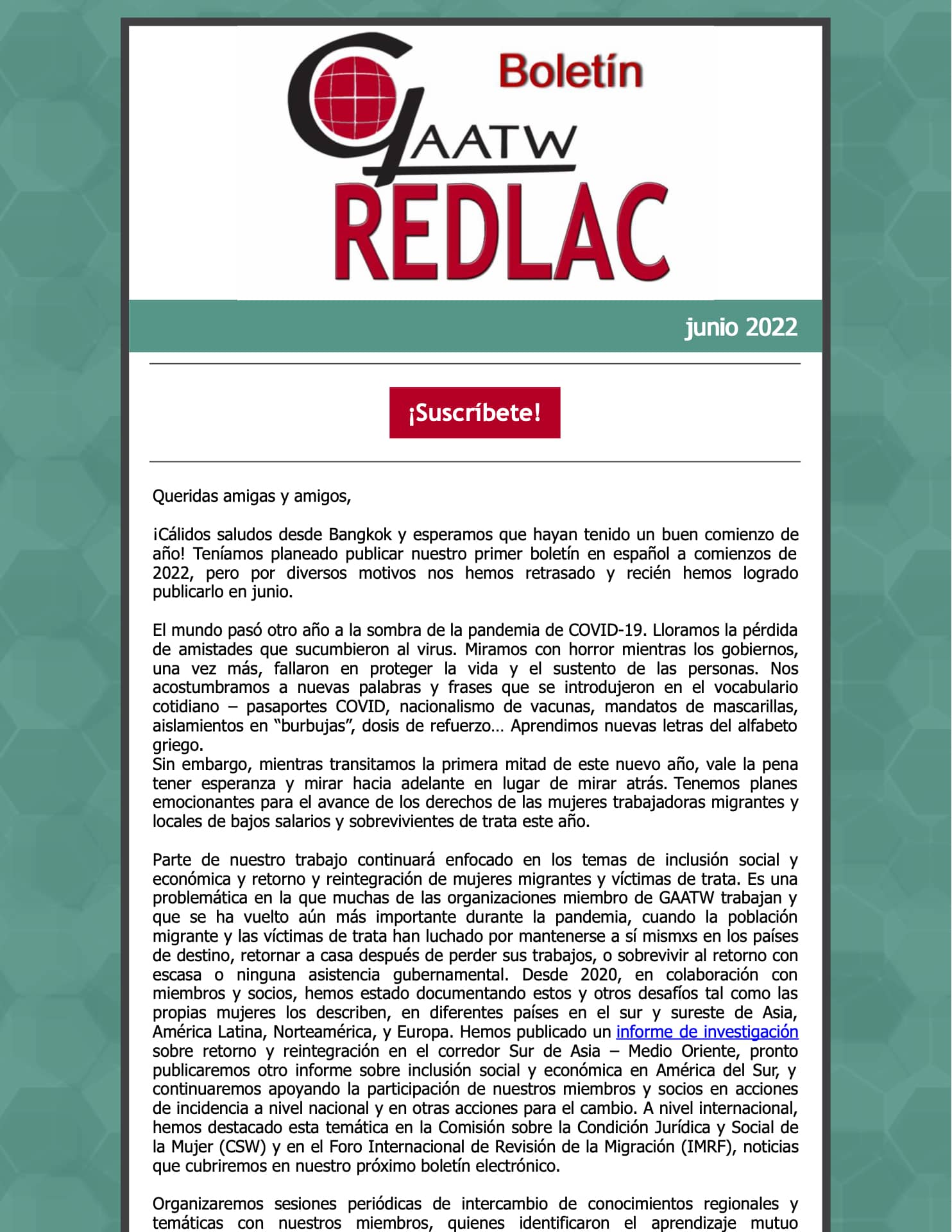
Boletín en español, Junio 2022
- Details
- Category: E-Bulletin
Queridas amigas y amigos,
¡Cálidos saludos desde Bangkok y esperamos que hayan tenido un buen comienzo de año! Teníamos planeado publicar nuestro primer boletín en español a comienzos de 2022, pero por diversos motivos nos hemos retrasado y recién hemos logrado publicarlo en junio.
El mundo pasó otro año a la sombra de la pandemia de COVID-19. Lloramos la pérdida de amistades que sucumbieron al virus. Miramos con horror mientras los gobiernos, una vez más, fallaron en proteger la vida y el sustento de las personas. Nos acostumbramos a nuevas palabras y frases que se introdujeron en el vocabulario cotidiano – pasaportes COVID, nacionalismo de vacunas, mandatos de mascarillas, aislamientos en “burbujas” , dosis de refuerzo… Aprendimos nuevas letras del alfabeto griego.
Sin embargo, mientras transitamos la primera mitad de este nuevo año, vale la pena tener esperanza y mirar hacia adelante en lugar de mirar atrás. Tenemos planes emocionantes para el avance de los derechos de las mujeres trabajadoras migrantes y locales de bajos salarios y sobrevivientes de trata este año.
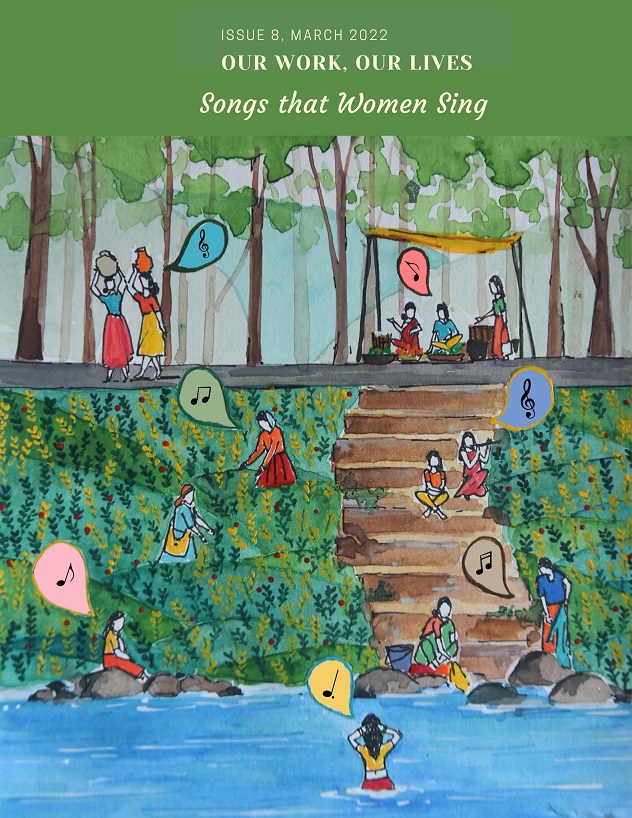
Our Work, Our Lives, issue 8: Songs that Women Sing
- Details
- Category: Our Work, Our Lives
Dear friends,
The March issue of Our Work, Our Lives focuses on music. Songs and music have always been powerful tools to inspire and mobilise people. They have been an integral part of social justice movements and the feminist movements have a treasure chest of powerful songs. So we thought that in March, when we celebrate International Women’s Day, it would be good to learn about the songs that our colleagues have been inspired by and use in their work. We are delighted that friends from so many countries shared songs, old and new, that they have used in their movements – for protest marches, trainings, celebrations, and solidarity gatherings. These songs raise their voice against patriarchy, discrimination, injustice, and extractivism and call for peace, freedom, and equality. Many songs are creations of groups. Some are full of humor and sarcasm. Some have anger. All are simple and powerful.
Songs have also been important for workers, including women workers. A lot of work that women do is repetitive, monotonous, time consuming, and taxing. They need patience, grit, imagination, love, and care to carry out their tasks, day in and day out. Women workers in traditional societies, like their male counterparts, have made up songs to go with work. They have sung while planting, weeding, cleaning, grinding, knitting, weaving, and putting their babies to sleep. Our friends from Aaina in Odisha, India shared a song performed by a woman farmer which is sung while planting rice.
Many songs have travelled across time and place. Bella Ciao, which many of us may know as a resistance, anti-fascist song, has its roots in the paddy fields of Po Valley in northeast Italy. The original singers of Bella Ciao in the nineteenth century were women mondine (literally “weeders”), who were bemoaning their harsh working conditions. Now the song is available in multiple languages and part of the social justice movements in many parts of the world. Even in the pre-digital era, songs like Bread and Roses and We Shall Overcome, had crossed geographical and linguistic barriers and become global. More recently, the protest march titled “el violador en tu camino” (A rapist in your way) organised by a Chilean feminist collective, LASTESIS, has gone viral and inspired women to hold street protests in many parts of the world including in Delhi and Nairobi.
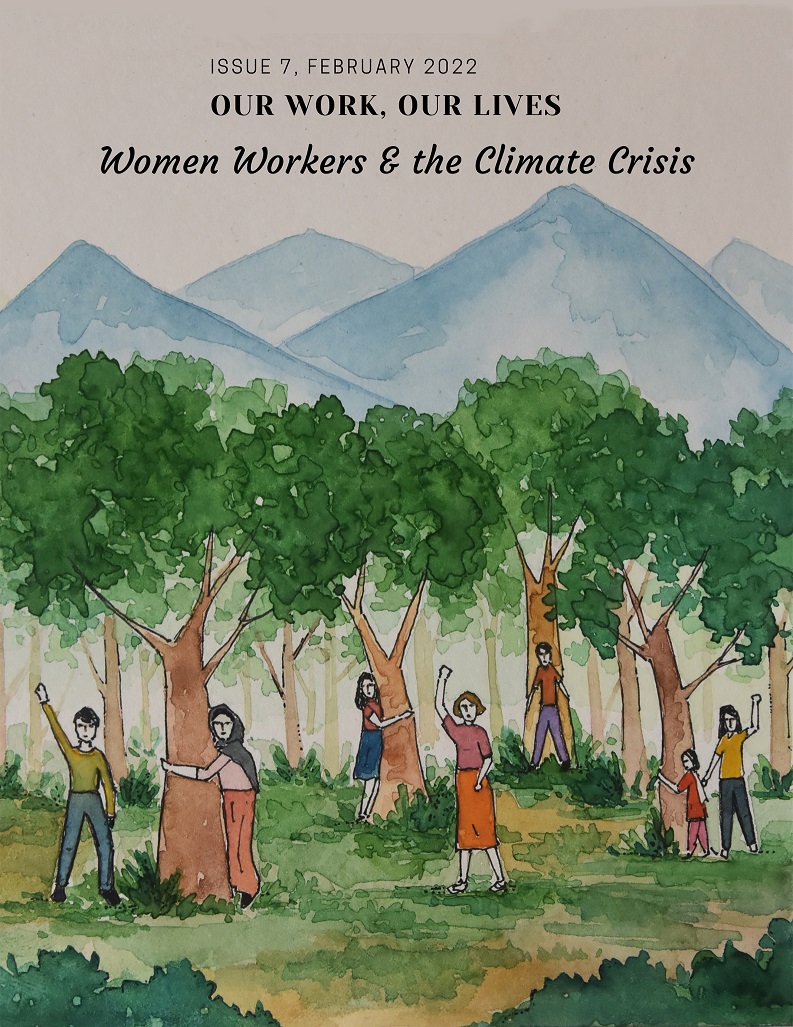
Our Work, Our Lives, issue 7: Women workers and the climate crisis
- Details
- Category: Our Work, Our Lives
Dear friends,
The February 2022 issue of Our Work, Our Lives focuses on the climate crisis. In preparation for this issue, some self-organised groups of women workers within our alliance and our colleagues working with them held group discussions on the topic of climate change and its impacts on lives and livelihoods. We wanted to know what kind of changes women workers have observed over the years, how it impacts them, and what steps they take to address the challenges.
Interestingly, the topic of climate triggered memories of natural disasters among many groups. Kala aur Katha’s group discussion focussed on the super cyclones in Odisha in 1999 and 2019. Malati Behera remembered that fateful day when she lost her husband and 6-year-old daughter to the cyclone. Reminiscing about cyclone Fani that hit the state two decades later, women artisans from the Dom community in Odisha pointed out how even during a cyclone the horrible practice of untouchability was not forgotten.
Jannath Ferdaus, a Bangladeshi migrant worker in the garment sector in Jordan, recalled how the frequent floods and cyclones in her village displaced her family and eventually resulted in her overseas labour migration. Jane Nungari Njoroge, a Kenyan migrant domestic worker in Jordan noted that state support often does not reach to the people in need. The women’s group that Shramajivi Mahila Samity works with shared that the weather pattern has changed: “Summers are longer and harsher than before. The time of sowing of paddy has also changed, forests are no longer dense. The variety of forest produce is also slowly going down”, they said. Badabon Sangho has highlighted the link between the climate crisis, land rights and violence against women.
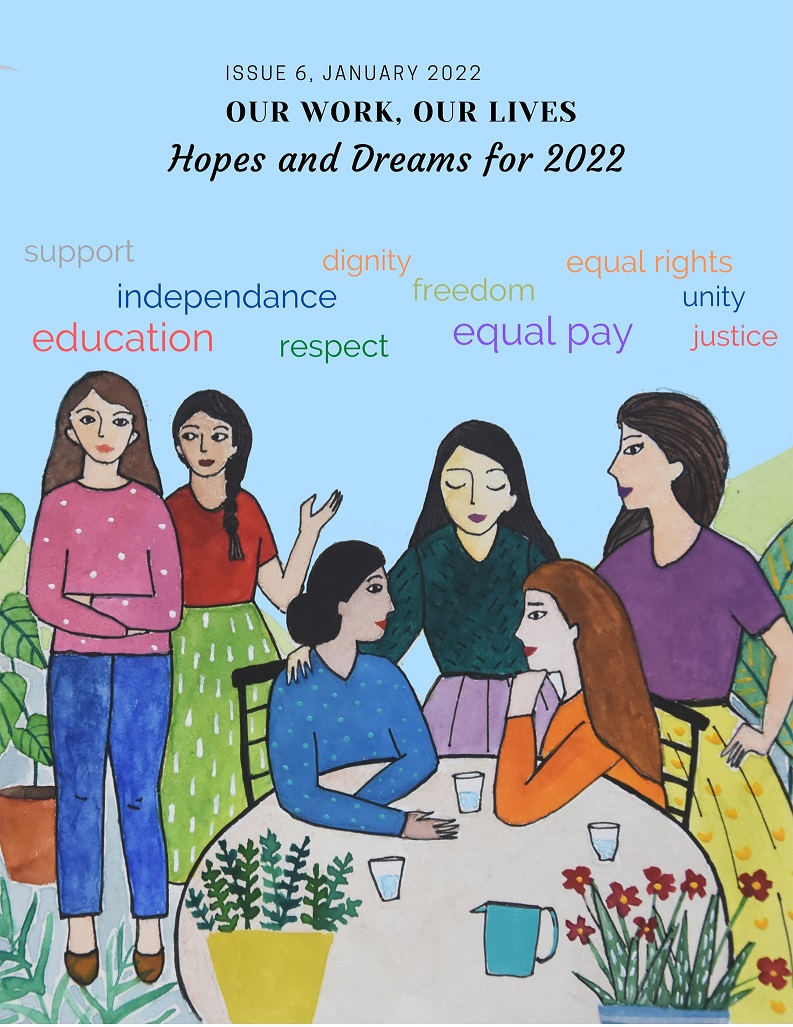
Our Work, Our Lives, issue 6: Hopes and dreams for 2022
- Details
- Category: Our Work, Our Lives
Dear friends,
Greetings of the New Year! Even though so far 2022 feels like Twenty-Twenty-Too, let’s hope that the situation will improve during the year. Hopefully the vaccination rates will increase significantly around the world and some degree of normalcy will return soon.
Our Work, Our Lives has reached its sixth issue which is very encouraging for a publication that relies completely on women workers and our colleagues who work closely with them. The women workers who write for the magazine are part of self-organised or community-based groups. They are at different stages of their collectivisation process. All of them meet regularly to carry out various collaborative activities. Some have facilitated discussions on various social issues and learning themes.
For the January 2022 issue of Our Work, Our Lives, we requested our sisters to share their collective hopes and dreams for the New Year with us. We made some suggestions on how they could go about their Collective Dreaming processes, but each group also had complete freedom to plan their own session in a completely different way.
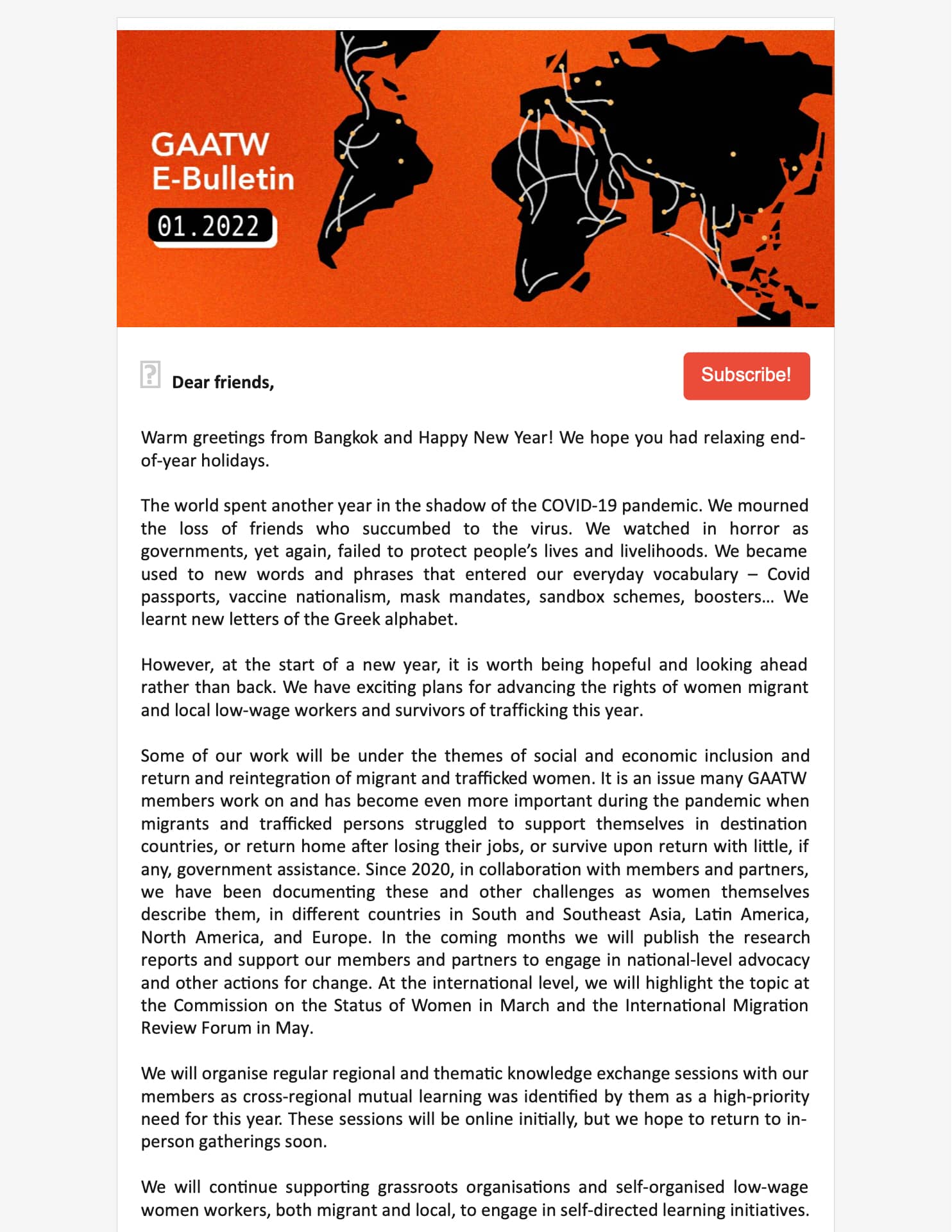
GAATW E-bulletin: Issue 1, January 2022
- Details
- Category: E-Bulletin
Dear friends,
Warm gree ngs from Bangkok and Happy New Year! We hope you had relaxing end- of-year holidays.
The world spent another year in the shadow of the COVID-19 pandemic. We mourned the loss of friends who succumbed to the virus. We watched in horror as governments, yet again, failed to protect people’s lives and livelihoods. We became used to new words and phrases that entered our everyday vocabulary – Covid passports, vaccine na onalism, mask mandates, sandbox schemes, boosters… We learnt new letters of the Greek alphabet.
However, at the start of a new year, it is worth being hopeful and looking ahead rather than back. We have exci ng plans for advancing the rights of women migrant and local low-wage workers and survivors of trafficking this year.
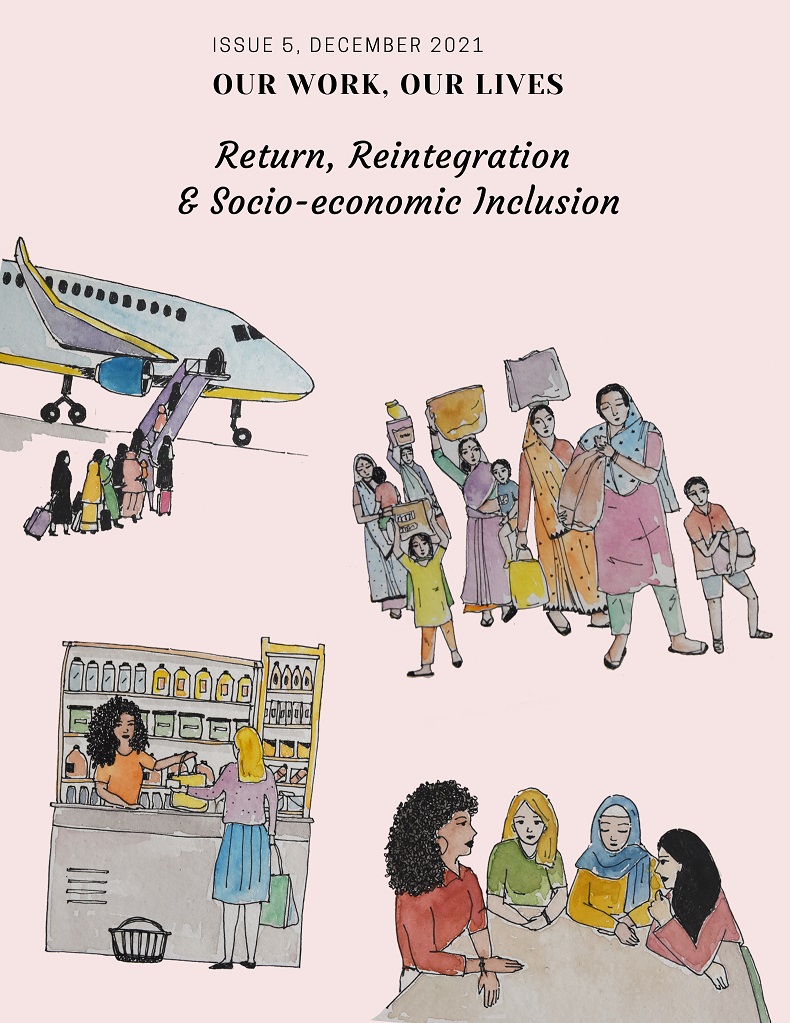
Our Work, Our Lives, issue 5: Return, reintegration, and socio-economic inclusion
- Details
- Category: Our Work, Our Lives
Dear friends,
The December issue of Our Work, Our Lives focuses on Return, Reintegration and Socio-economic Inclusion of women migrant workers. We chose to focus on these themes because they resonate with the work of many GAATW members and partners. Some of our colleagues in South and Southeast Asia, Europe, Latin America, and North America are currently doing Feminist Participatory Action Research on these topics.
The Global Compact for Safe, Orderly and Regular Migration (GCM) in its objective 21 places an obligation on states to ‘cooperate in facilitating safe and dignified return and readmission, as well as sustainable reintegration’. Given the fact that many states overtly or covertly violate international human rights laws while ‘returning’ and ‘readmitting’ migrants, objective 21 aims to address an important lacuna. The UN Special Rapporteur on Human Rights of Migrants’ study on return had pointed out that the so-called ‘voluntary return’ is not genuinely voluntary, preferable as it may be to forced return or expulsion.
Unlike return and reintegration, socio-economic inclusion often does not feature in international documents. At a time when most countries prefer to have temporary migration schemes, perhaps it is assumed that migrants would return to their home countries and reintegrate socially and economically. Yet, ideally, measures for socio-economic inclusion in countries of destination should be put in place, even for temporary migrants.
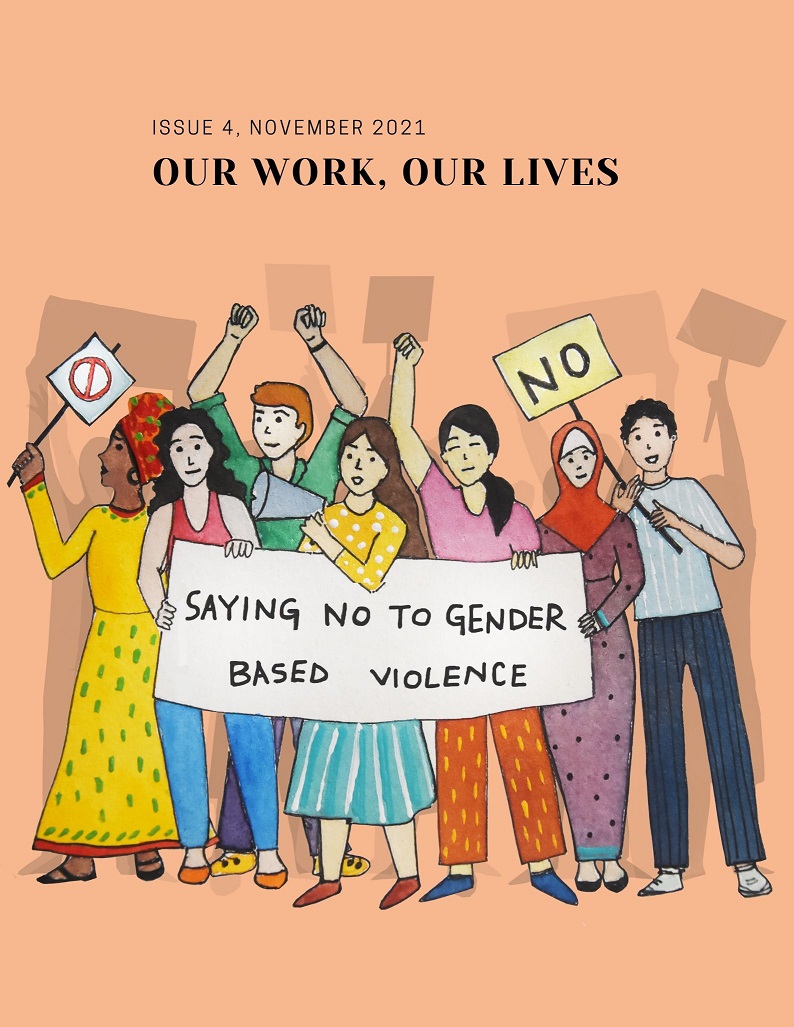
Our Work, Our Lives, issue 4: Saying NO to gender-based violence
- Details
- Category: Our Work, Our Lives
Dear friends,
Every year from 25 November (International Day Against Violence Against Women) to 10 December (International Human Rights Day), thousands of organisations around the world, run the 16 Days Campaign to End Gender Based Violence. Launched in 1991 by the first Women’s Global Leadership Institute, held by the Center for Women's Global Leadership (CWGL) at Rutgers University, the campaign marks its 30th Anniversary this year.
The multi-year campaign theme began in 2018 to end gender-based violence in the world of work continues this year with a special focus on the link between domestic violence and the world of work. In addition, there is a 30th Anniversary theme of femicide or the gender-related killing of women. These themes are timely because there has been a surge in domestic violence and femicide during the on-going COVID-19 pandemic and their negative impact on the work, livelihood, and well-being of millions of women is clearly visible.
During this year’s 16 Days campaign, our colleagues at DAWN (Development Alternatives with Women for a New Era) in partnership with the International Network to End Violence Against Women and Girls (INEVAWG) have highlighted the link between gender-based violence and the geopolitical powerplay, corporate domination of international trade, structural inequality between countries, and the on-going vaccine apartheid. Reiterating the data that the external debt of low-income countries has grown by 12% and that more than half of the 453 million people who could be thrown into poverty by 2030 are women, they urge us to look at the macro-economic aspects of GBV.
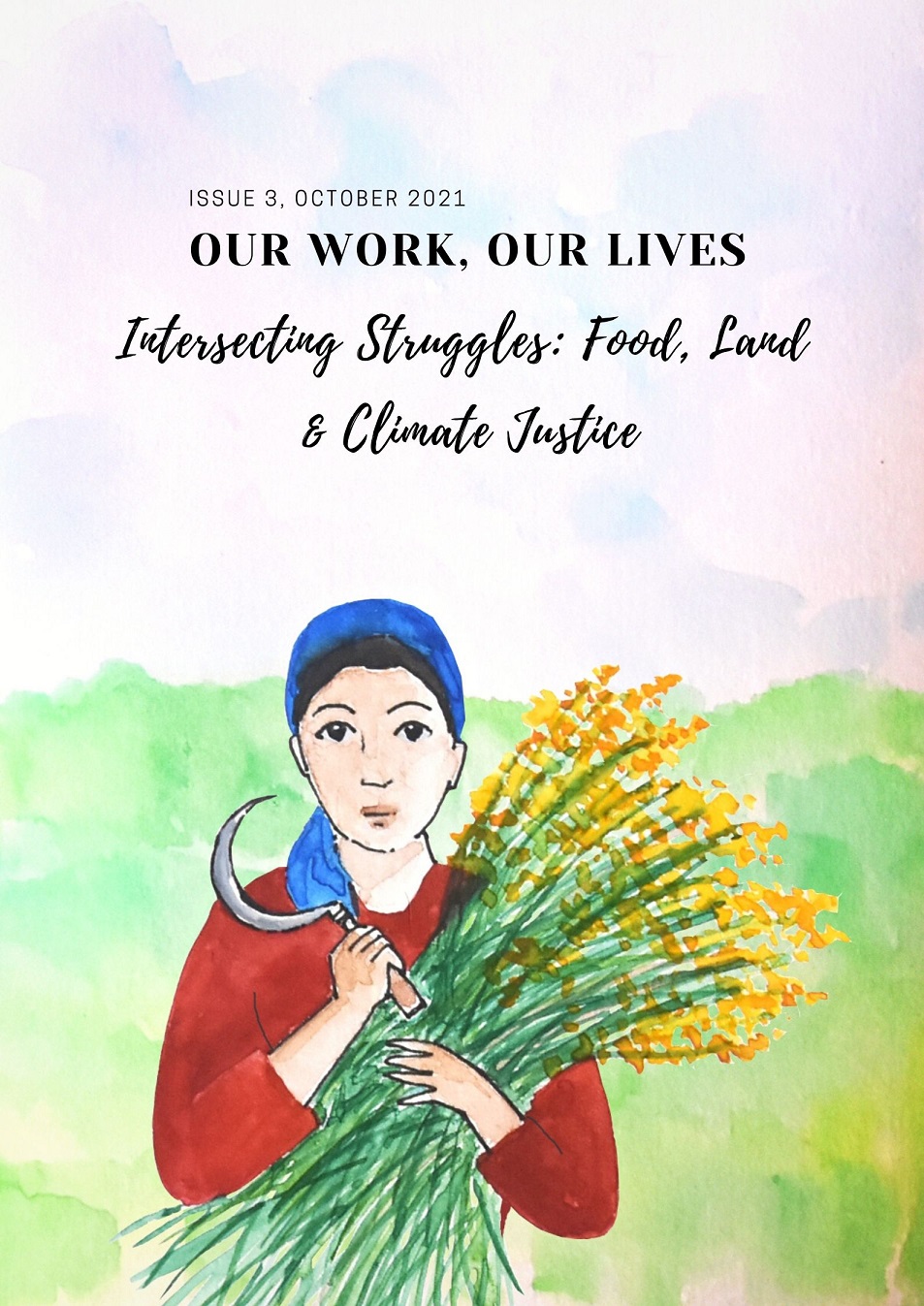
Our Work, Our Lives, issue 3: Intersecting Struggles: Food, Land & Climate Justice
- Details
- Category: Our Work, Our Lives
Dear Friends,
We bring you the October issue of Our Work, Our Lives today. The theme of this month is Intersecting Struggles: Food, Land & Climate Justice.
We said last month that we would continue with the topic of food in October. We wanted to hear from women farmers. We also wanted to talk to women who work in the food industry – processing, packing, cooking and serving food. October 15 is the International Day of Rural Women, which many of our colleagues celebrate as Women Farmers Day. October 16 is World Food Day. So we thought that it would be interesting to talk to the women food producers and workers our members and partners work with in different parts of the world.
At this moment, human security and international solidarity are at their lowest. Contrary to what some of us had hoped for last year, militarism putting profit before people and the planet have not shown any sign of decline. Despite strong civil society mobilisation, People’s Vaccine is still a distant dream. When we look at this failure of the international community and the rise of hunger and unemployment in so many parts of the world, phrases like ‘leaving no one behind’ and ‘building back better’ sound like empty rhetoric.
